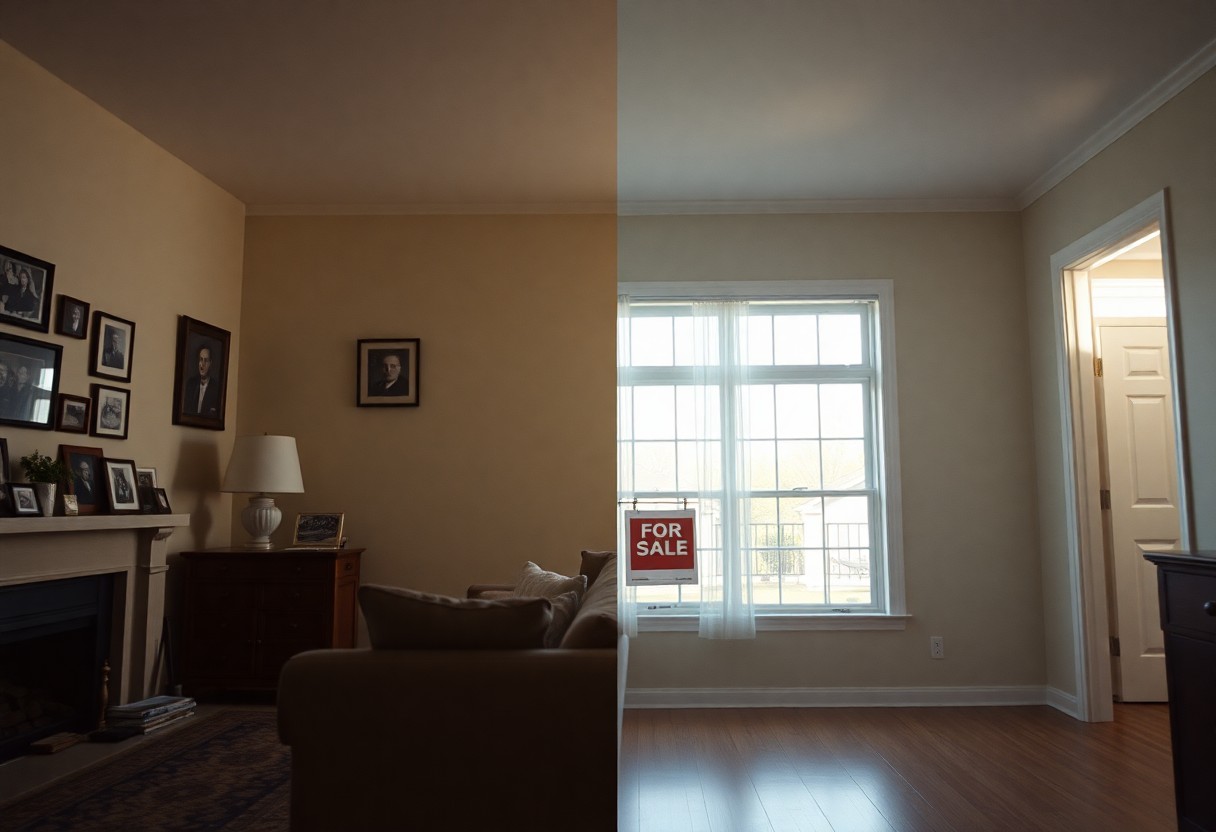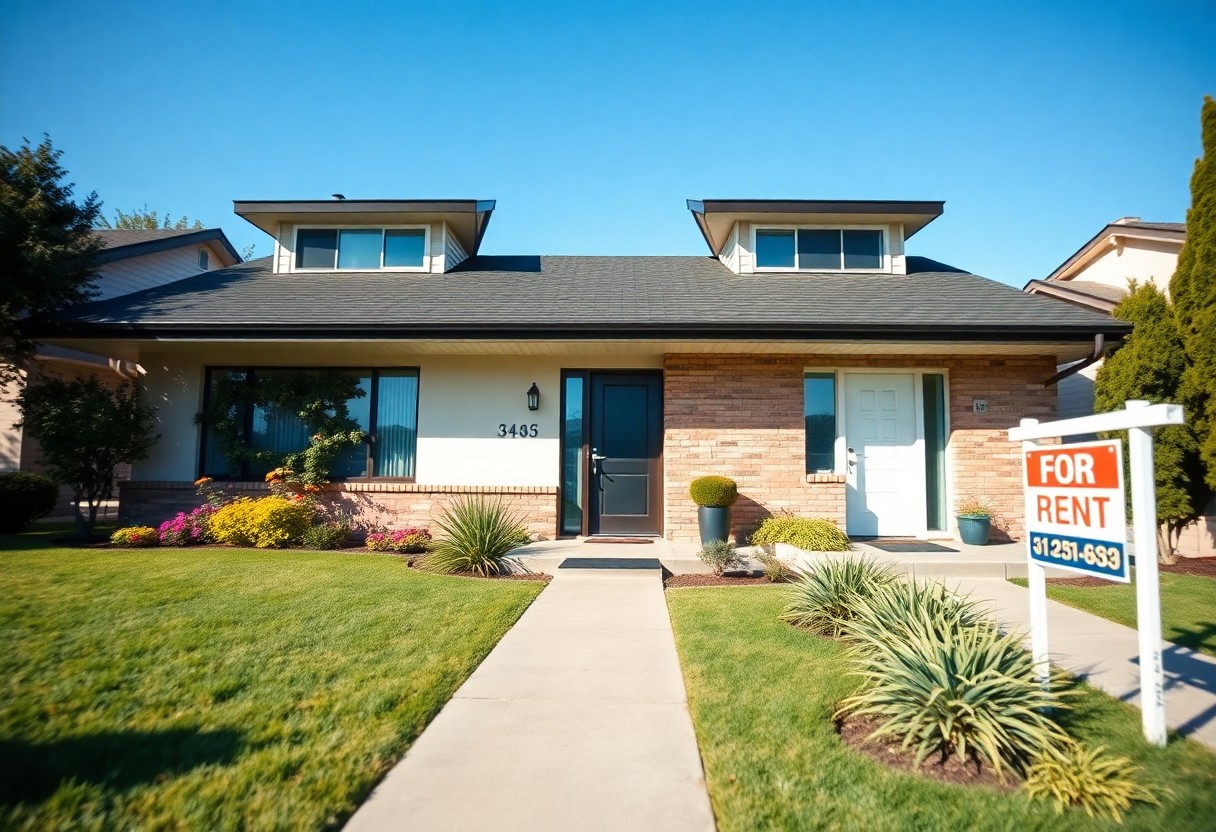Marital transitions can be challenging, and one of the most pressing questions you may face is whether you can remain in the marital home after divorce. Understanding your rights and the factors that influence your ability to stay put is crucial. Various elements, such as ownership, property agreements, and local laws, will significantly affect your situation. This post will guide you through the considerations necessary for determining if staying in the marital home is a viable option for you and your family during this transitional period.

Key Takeaways:
- Staying in the marital home after divorce can depend on various factors, including legal agreements and the couple’s financial situation.
- In many cases, ownership of the home will influence whether you can continue living there; the spouse with legal title often has more rights.
- Child custody arrangements can also impact decisions on who stays in the home, particularly if children are involved.
- Negotiating a fair settlement may allow one spouse to remain in the home for a specified time, often until children are grown or until certain financial conditions are met.
- Consider the potential financial implications, including mortgage payments, taxes, and maintenance costs when deciding to stay.
- Legal advice can be invaluable in navigating the complexities of property rights and spousal agreements during a divorce.
- If you choose to leave the marital home, ensure that your rights are protected regarding property division and child custody arrangements.

Navigating Legal Considerations in Home Retention
Understanding the legal framework surrounding home retention after divorce is vital to making informed decisions. Your rights in the marital home can vary based on state laws, existing legal agreements, and the specific circumstances of your marriage. You may need to negotiate property division terms, so being knowledgeable about these aspects will enhance your bargaining power and overall outcome.
Property Ownership and Title Implications
Ownership of the marital home typically depends on how the title is held. If the house is solely in your name, you may have a stronger claim to remain. However, if both names are on the title, you might face challenges in keeping the home without agreement from your spouse, potentially leading to a forced sale.
Marital vs. Separate Property Dynamics
The distinction between marital and separate property significantly influences your ability to retain the home. If the house was acquired during the marriage, it is likely considered marital property, subject to division. Conversely, if the home was inherited or purchased before marriage, it may be classified as separate property, granting you a stronger position in retaining it.
Marital properties are generally divided equitably in divorce proceedings, meaning that both spouses have a claim. For instance, if you bought the home together, the division might depend on the financial contributions each made toward it. In contrast, properties deemed separate are removed from this equation; if you inherited a property from a relative, you could potentially keep it without sharing its value with your spouse. Solid documentation and clear evidence about the property’s origin can be crucial in defending your claim, so gather any relevant paperwork to strengthen your case.
The Emotional Landscape of Staying in the Marital Home
Staying in the marital home can evoke a whirlwind of emotions. The walls hold memories of both joyful moments and painful disputes. You may find comfort in familiar surroundings, but lingering reminders of your past relationship can also lead to feelings of grief and loss. The decision to remain in the home requires careful consideration of your emotional wellbeing and whether you can create a healthy environment for yourself in the midst of the emotional turmoil.
Psychological Effects of Leaving vs. Staying
Deciding to leave or stay in the marital home significantly impacts your mental state. Staying can feel like you’re clinging to the past, which may hinder your healing process. Conversely, leaving may trigger feelings of uncertainty and anxiety, especially with the transition into a new environment. Weighing the psychological effects of both situations can help you determine what’s best for your emotional health moving forward.
Creating a Sense of Stability for Children
For children, a stable environment can make a significant difference in how they adjust to the changes brought by divorce. Remaining in the marital home often provides familiarity and continuity that can ease their anxiety. This stability ensures that their routines, friendships, and support structures remain as intact as possible, promoting a sense of security during a tumultuous time.
Creating a stable environment allows children to maintain their daily routines, which is crucial for their emotional stability. Regular school schedules, playdates, and family traditions can be continued, allowing them to process the divorce without additional disruption. Additionally, the known surroundings of the marital home can be comforting, helping them feel anchored in a time of upheaval. In turn, this stability enables them to focus on their emotional wellbeing, facilitating healthier coping mechanisms as they adjust to life post-divorce.
Financial Impacts of Home Retention After Divorce
Retaining the marital home can significantly affect your financial situation post-divorce. Owning the home requires you to consider ongoing expenses like property taxes, insurance, and maintenance costs, which can strain your budget. You may also face the challenge of negotiating a fair buyout with your ex-spouse, adding to your financial commitment. Understanding these implications is vital for making an informed decision about home retention.
Evaluating Affordability and Mortgage Responsibility
Analyzing your financial capacity to manage the mortgage independently is vital. If you have a low income or limited savings, the monthly mortgage payments might be overwhelming. When assessing affordability, evaluate your current income, debt-to-income ratio, and any financial changes you anticipate after the divorce. Recognizing the long-term commitment tied to homeownership can help you determine whether it’s sustainable for you.
The Role of Spousal Support and Alimony
Spousal support or alimony can provide additional income that makes home retention feasible. If you qualify for financial assistance post-divorce, these funds can help you cover mortgage payments, property taxes, and upkeep expenses. However, the amount and duration of alimony can vary widely depending on factors such as the length of your marriage and your individual financial situation. A reliable estimates will give you a clearer picture of your ongoing financial obligations, allowing you to make better decisions regarding the marital home.

Alternative Living Arrangements and Their Benefits
Deciding on the next steps after leaving the marital home can lead you to consider alternative living arrangements that suit your new lifestyle and financial situation. Exploring options such as renting or moving in with family can provide you with the flexibility and time needed to adjust. Each arrangement offers its own set of advantages, from reduced financial burdens to alleviated emotional strain, allowing you to focus on rebuilding your life post-divorce.
Exploring Transitional Housing Options
Transitional housing options can be a great way to ease the transition after divorce. Short-term rentals, co-living spaces, or even temporary arrangements with friends or family can give you the time to find a permanent solution. These options often come with lower costs and shorter commitments, allowing for greater flexibility in your living situation during this period of change.
Benefits of Co-Parenting from Separate Residences
Co-parenting from separate residences often leads to an improved dynamic for both parents and children. It allows for dedicated spaces for parenting duties, decreasing the conflicts that can arise from cohabiting. With a structured approach to shared responsibilities and schedules, it can create a more peaceful and supportive environment, ultimately benefiting your children’s emotional well-being and promoting healthier relationships with both parents.
In a separate living arrangement, you’re more likely to establish clear boundaries that foster respect and cooperation. Having distinct spaces enables more focused and dedicated parenting time with your children, reducing stressors that may arise from distractions or conflicts in a shared environment. Research shows that children thrive in stable, structured conditions, making co-parenting from separate homes an effective way to nurture their growth while adapting to the changes in family dynamics.
Making the Tough Decision: Factors to Consider
When weighing the decision to remain in the marital home after divorce, several factors will influence your choice. Consider financial stability, emotional attachment, and potential impacts on children. Evaluate the practicality of maintaining the existing household and whether your living arrangements can support your long-term plans. The condition of the home and the ability to manage ongoing maintenance costs are also critical considerations. After thoroughly examining these aspects, you can make a more informed choice about your future.
Assessing Your Long-Term Goals and Needs
Your long-term goals and needs play a pivotal role in deciding whether to stay in the marital home. Think about your career, personal growth, and how these align with your current living situation. Will remaining in the home support your objectives, or will it hinder your progress toward independence? An honest assessment will guide you toward a decision that best serves your future.
Consulting with Professionals for Insight and Guidance
Engaging with experienced professionals such as real estate agents, financial advisors, or divorce mediators can be advantageous. Their insights can provide clarity and assist you in evaluating your options. Understanding market conditions from a realtor, receiving financial guidance on maintaining the home from an advisor, or establishing a fair agreement with a mediator can mitigate potential pitfalls.
Consulting with professionals not only provides expert advice but also offers a comprehensive view of your situation. Real estate agents can give you a definitive idea about the market value of the home and whether selling or staying makes more sense financially. Financial advisors can help you navigate the potential costs of remaining, such as property taxes and maintenance, while divorce mediators can facilitate discussions with your ex-spouse about shared responsibilities and logistics. The expertise of these professionals can illuminate paths you may have overlooked, empowering you to make a well-rounded decision about your living arrangements post-divorce.
Summing up
Taking this into account, your ability to stay in the marital home after divorce largely depends on a variety of factors such as ownership, mutual agreements, and local laws. It’s important to assess your financial situation, consider custody arrangements for children, and also seek legal advice to better understand your rights. Ultimately, communicating openly with your spouse and exploring options that prioritize your well-being can help you make informed decisions about your living situation post-divorce.
FAQ
Q: Can I stay in the marital home after divorce?
A: Yes, it is possible to stay in the marital home after divorce, but various factors come into play, including agreements made during separation, the needs of any children, and financial considerations. It’s vital to consult with a lawyer regarding your rights and options.
Q: What factors determine if I can keep the marital home?
A: Factors such as ownership of the property, mortgage agreements, financial capability to maintain the home, and the best interests of any children involved will influence whether you can stay in the marital home. Courts often consider these elements during divorce proceedings.
Q: How does child custody affect my ability to stay in the home?
A: Custodial arrangements greatly impact housing decisions. If one parent is granted primary custody of the children, they may have a stronger case for remaining in the marital home to provide stability for the children. Courts usually prioritize the well-being of the children when making housing decisions.
Q: What if both parties want to stay in the marital home?
A: If both parties express a desire to stay in the marital home, negotiations are necessary. This situation may lead to discussions about cohabitation, buyouts, or selling the property. Legal advice can assist in navigating these negotiations and reaching a fair agreement.
Q: Can I afford to keep the marital home after divorce?
A: Affordability is a significant consideration when deciding to keep the marital home. It’s vital to evaluate your financial situation, including income, expenses, and mortgage obligations. You may need to make financial adjustments or seek legal advice for guidance on how to manage these obligations.
Q: What happens if I cannot afford the marital home?
A: If you cannot afford to keep the marital home, options may include selling the property, negotiating a buyout with your ex-spouse, or exploring rental arrangements. Consulting a financial advisor can help you assess your options and make informed decisions about your living situation post-divorce.
Q: Can my spouse force me to leave the marital home?
A: Generally, one spouse cannot forcibly evict the other from the marital home without a court order. However, if a divorce is filed, a temporary order may be requested by either party to determine who will stay in the home during the proceedings. Consulting a lawyer can clarify your legal rights and options in such situations.
